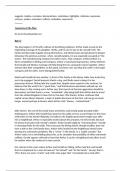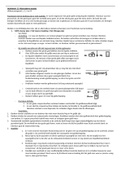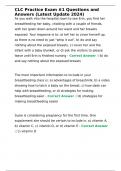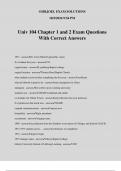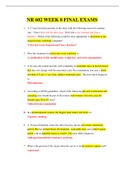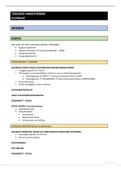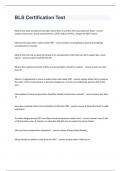Summary
GCSE English Literature An Inspector Calls notes and summary
In this document, there is a summary of the whole story, shortened down, act by act summarising the key parts of each chapter. There is contextual information about J.B Priestley, Edwardian society, Socialism vs Capitalism, personal responsibility and plenty more to help the A03 band which you must...
[Show more]
